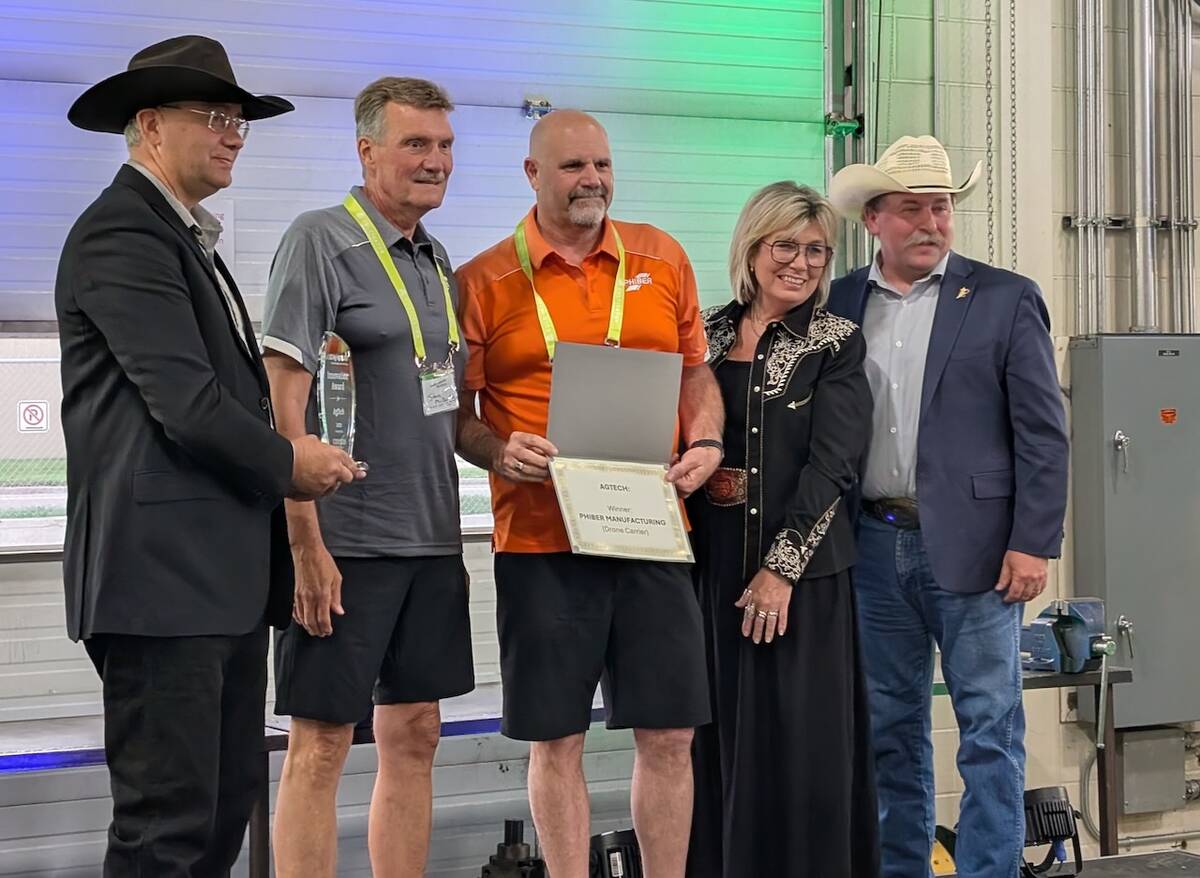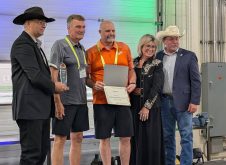For those keeping track, the score is Monsanto four, Schmeisers zero.
A Provincial Court of Saskatchewan judge has dismissed Louise Schmeiser’s small claims case against the biotechnology company.
The June 15 decision adds to losses her husband Percy Schmeiser sustained taking on Monsanto in a series of highly publicized battles in recent years at the Federal Court of Canada, the Federal Court of Appeal and the Supreme Court of Canada.
Louise Schmeiser launched the latest case but it was her husband who appeared in court in Humboldt, Sask., on March 21 to confront Monsanto, saying his wife was too ill to appear in person.
Read Also

Ag in Motion innovation awards showcase top 2025 ag technology
The 2025 Ag in Motion Innovation Awards celebrated winners across five categories: agronomics, agtech, business solutions, environmental sustainability and equipment.
“For whatever reason, Mr. Schmeiser wants to take these things forward, so we deal with them as they come forward,” said Monsanto Canada spokesperson Trish Jordan, who was pleased by the latest verdict.
Louise Schmeiser sought $140 plus costs from Monsanto for having to remove unwanted volunteer canola plants from her organic garden and nearby shelterbelt in 2002.
However, judge Dolores Ebert ruled there wasn’t enough evidence to determine whether the canola volunteers found in Schmeiser’s garden were Roundup Ready plants.
Schmeiser declined to comment on the outcome, stating she hadn’t received a copy of the decision.
“Maybe it’s just lost in the mail,” she said from her home in Bruno, Sask.
Jordan said an intriguing aspect of the decision is that the judge ruled Monsanto had no “duty of care” to ensure there is no unwanted spread of its GM canola.
She doesn’t know whether that portion of Ebert’s small claims court ruling could influence future litigation regarding GM contamination.
Jordan pointed out that even if Monsanto doesn’t have a legal obligation to control unexpected volunteer plants, the company has had its own voluntary policy in place since 1996, which leads to “a handful” of clean-up cases every year.
“We don’t tend to get a lot of calls on this issue because most farmers are managing volunteers, whether they are expected or unexpected,” said Jordan.
In the case of Louise Schmeiser, the clean-up policy was complicated by the fact Monsanto was in active litigation with her husband at the time and all correspondence between the two parties was supposed to happen through their lawyers.
The judge ruled Schmeiser did not contact Monsanto in the manner required and thus the company could not be held responsible for the costs of removing the canola plants.

















